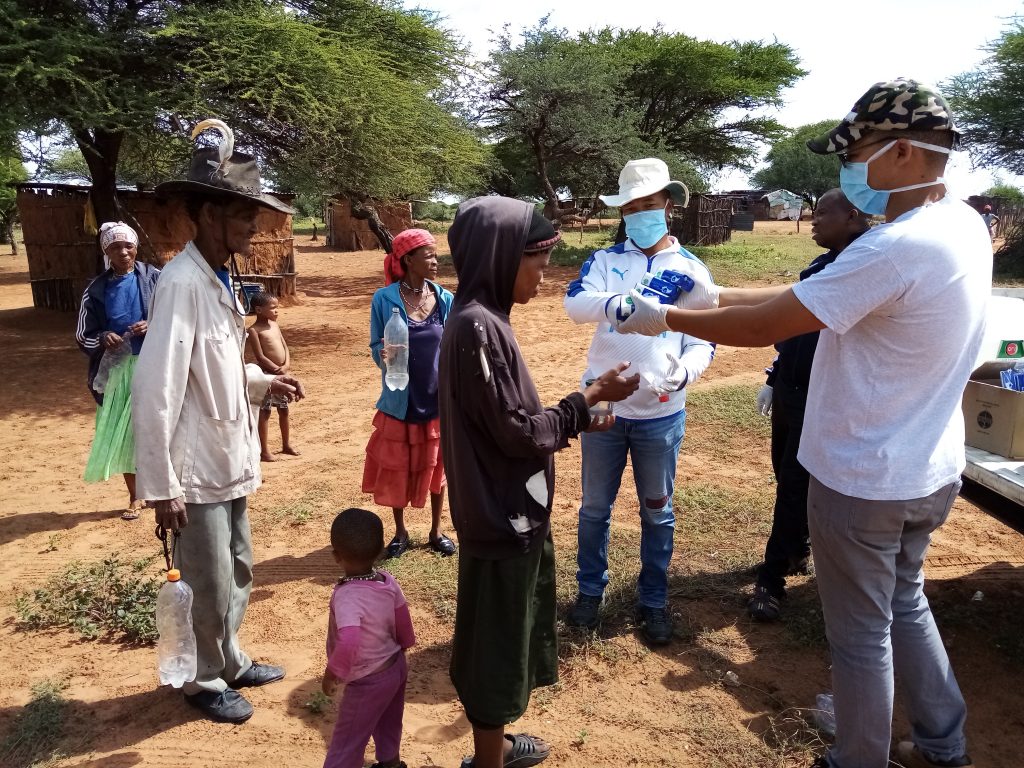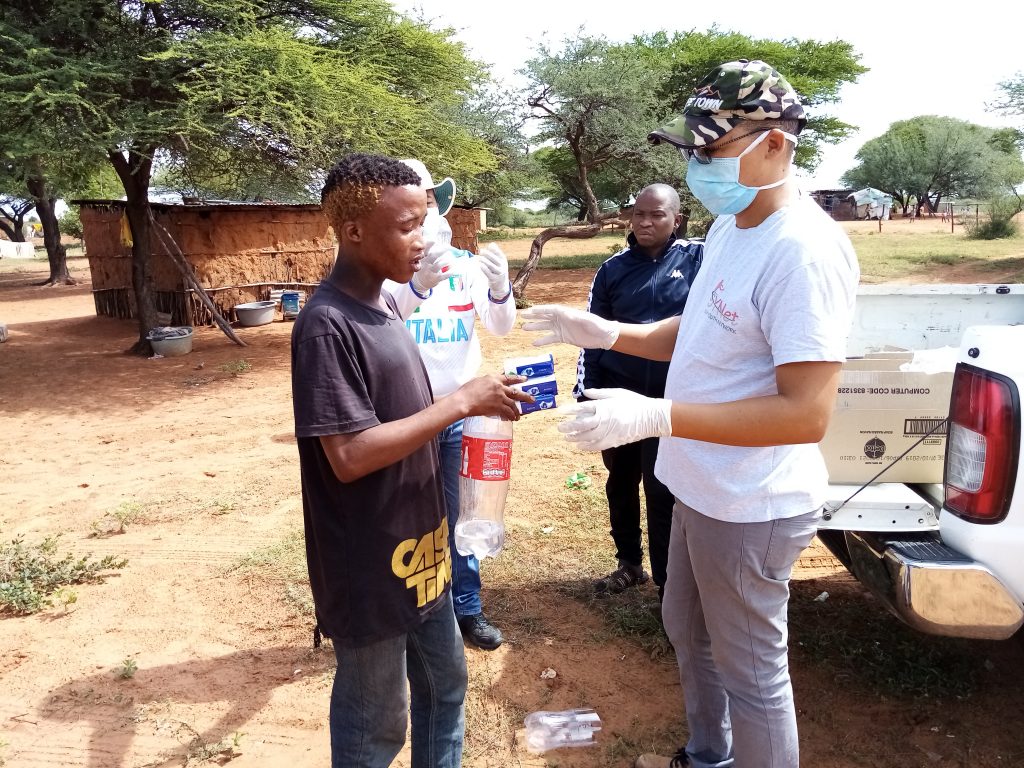D’kar village has an estimated population of 2000 and is located in the Ghanzi district of western Botswana. For many centuries, it has been home to people of San origin (commonly known as bushmen), which has attracted numerous tourists and foreign visitors to admire their traditional way of life. Visitors are exposed to their unique cultures and their natural talents and skills in art and print works, San rock paintings, craft work, their production of exotic leather items, wild-food gathering, and particularly, their talents in dance, game-hunting and game tracking.
However, poverty remains a predominant local problem, and the community members are putting in much effort into creating opportunities for a better standard of living through, for example, government empowerment schemes.
Personally, I was born and raised in D’Kar and hold strong roots to the community. My experience and way of life, my understanding of life as it is, springs from the struggles I have experienced in the community.
During the early years of self-emancipation, way back in 1980, where development in its entirety was realised by the San, D’Kar communities started to organise themselves to create projects that aimed to sustain them in the modern world where modern issues needed innovation to be solved. It began with a few women sitting long-legged under a tree embroidering, a few men scraping wet goatskins at the well, others gathering plant root for tanning. This was the beginning of Kuru projects.
These few San tried to bring change to the poverty and lack of recognition of their people. A Naro name, Kuru, meaning ‘to do or to create’, was chosen as their platform to organize under. When these small groups started to organise themselves and became registered in 1986, these projects were placed under the new name of the Kuru Development Trust. Kuru had the objectives of empowering the San in South Africa and Botswana to create meaningful and sustainable lifestyles, coupled with promoting leadership and decision-making in the organisation.
The San and Covid-19
Despite the potential for economic development, the community has been devastated by the Covid-19 pandemic. On the 2April 2020, the Government of Botswana declared a State of Emergency for six months and immediately initiated a lock-down for 28 days with an extension of another 22 days.
However, the lockdown regulations have been difficult to implement in the community. This is due to the fact that most poor D’Kar people live under conditions of dire poverty, in severely overcrowded and small dwellings. Their lifestyle and cultural practices are communal, with the sharing of food, utensils and other goods being both a necessity and a strong cultural norm.
Many San people, particularly the elderly, are not formally trained and the community is plagued by malnutrition and alcohol abuse. The San, furthermore, experience high levels of discrimination and racism, particularly in healthcare settings where they often receive abuse and denigration at the hands of nurses and doctors. These abuses are sometimes displayed through derogatory language and coercive ways of administering treatment. Grave human rights abuses are an almost constant feature of San life, and the emergency regulations, it is feared, will only exacerbate this situation.
Other factors of economic loss exacerbated by COVID-19 are the small business sectors in which the San gain a livelihood. Whereupon they work in tourism sectors, many have been retrenched and now rely on monthly Government food rations, which are sometimes not enough for a single larger household.
All of these factors combine to place the San in the middle of a perfect storm which would decimate the people, should Covid-19 reach our community.

The response from government
To date, there has been little relief on offer from the government, and the measures implemented are largely inappropriate, ineffective or unattainable for San people. Health information and advice issued by the government and NGOs are produced primarily in Tswana and do not take into consideration the particularities of San culture and the conditions under which our people live.
Measures such as social distancing, self-isolation and washing hands must be implemented within the context of the realities of San life. The State of Emergency declared by the Government of Botswana for the next 6 months, which includes restrictions on movement, means that it will be necessary to deploy innovative strategies to reach remote San communities.
The usual means of disseminating information, such as pamphlets, T-shirts and workshops, are unworkable under these circumstances, and in some cases will exacerbate the spread of Covid-19 to communities which, until now, have not yet have been exposed to the virus.
If the epidemic reaches the San communities, a plethora of things are at play; the longest indigenous culture known to mankind will perish, the knowledge of nature and conservation will perish, different traditional foods, knowledge on medicine, etc will perish. Should the virus reach them, will ultimately devastate the very fabric of San life.
I currently work in the spirit of volunteering, raising small amounts of funds to purchase hygiene baskets as well as washable face masks to donate to every household. These efforts are meant to mitigate the spread of the virus should the infection reach the community. I lead a group of like-minded young leaders to disseminate information about the virus while we are handing out the hygiene baskets and washable face masks.
I have no doubt that the pandemic has and will continue to change the mosaic of life as we know it. Too often, the San are challenged with different realities of life and it is for them to adapt and find ways to overcome these situations.
Finally, the risk of having a culture, post COVID-19, that has existed for millennia, to be at the edge of change, will ultimately force the San to live in such ways that express a new level of caution. The challenge is to hold on the traditions of the past and pass this to the next generations. With this situation threatening us, we need to, among other things, store this information in digital platforms so as to allow for the next generation to have access to the knowledge.
You can support my work here: https://www.givingway.com/project/ffcccb

